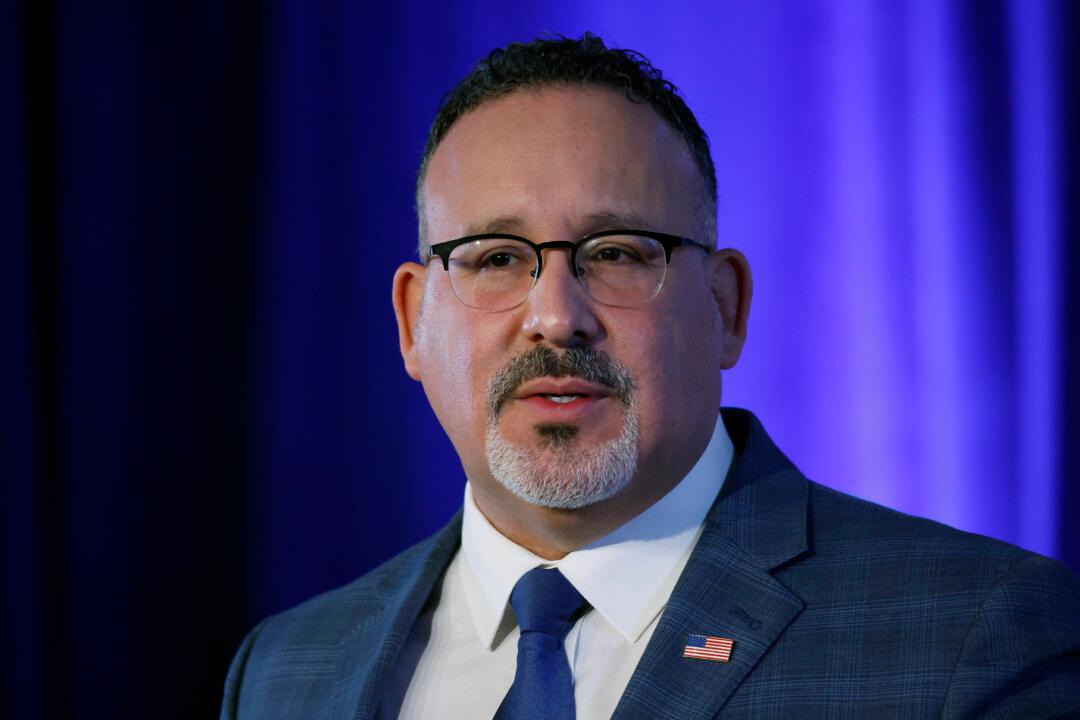U.S. Secretary of Education Miguel Cardona sounded the alarm on Aug. 2 about the need for secondary schools in the United States to prepare its students for careers in career technical education.
Throughout a roundtable discussion at Crossland High School in Temple Hills, Md., with educators, young blue-collar workers, Maryland Labor Secretary Portia Wu, and Rep. Glenn Ivey (D-Md.), who represents the area in Congress, Mr. Cardona emphasized the need for there to be a nexus between secondary schools and employers with apprentice programs in areas ranging from plumbing to welding to carpentry.





